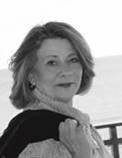Shelley Noble is the author of the new novel Picture Perfect Autumn. Her many other novels include The Tiffany Girls. A former professor, professional dancer, and choreographer, she lives at the Jersey shore.
Q: What inspired you to write Picture Perfect Autumn, and how did you create your character Dani?
A: When I see something that strikes me as special, or interesting, I grab my phone and take a quick photo, but I don’t always capture what I wanted.
So, a year and a half ago, I finally splurged and bought myself a good camera. And immediately realized I had a lot to learn. It was pretty intimidating at first. I think I had naively been counting on the camera to take care of those missed timings, blurry images, etc. Fortunately, I have a few very patient photographer friends to help me out.
But what if…someone’s livelihood depended on success. Someone who wasn’t satisfied with what she was now as an artist or a person. And gradually Dani developed. Young, self-taught, and currently the darling of the New York art scene.
She knows it could all come crashing down in the blink of an eye; it’s a competitive business. She also knows something is missing in her photographs and she’s determined to find what that thing is, because she’ll never be satisfied until her camera catches what her heart sees.
Q: How would you describe the dynamic between Dani and Lawrence?
A: It’s hard to describe. I mean what do you get when a brassy, 20-something year old Brooklyn photographer meets a bitter, reclusive 80-year-old photographer who sees what she doesn’t—yet. I wasn’t sure how it would turn out, but I went for it.
At first, they’re both distrustful. She battering rams her way into his life; he’s elusive, wary of her intentions. He purposely ignores and misunderstands her—at first. Sometimes combative, sometimes mischievous, always challenging each other, they forge a long path to acceptance and inspiration.
Q: Can you say more about why you decided to focus on photography in this novel?
A: I always try to highlight something near and dear to my heart in each of my novels, while stressing the importance of community, be it family or friends or colleagues.
Last year’s Summer Island was about a young journalist who discovers how to keep local news alive in a world too often concerned only with big headlines and not the small things that make a difference.
Photography is about seeing what others don’t see. It catches in time what most of us are too busy to notice. And it speaks to that place which lies inside of us that sees the essence of things, the same thing that Dani was looking for in Picture Perfect Autumn.
Q: Was the beach house in the novel based on an actual house?
A: Not at all. I usually decide on the kind of beach house I want to use based on a place or two I’ve seen in person or in photos. For Picture Perfect Autumn, I cherry-picked all the “bad” things that could happen to a house as it aged and created a “Gothic horror beach house from hell.” All in good fun.
The porch is sagging, the paint has faded, the turrets seem to barely cling to the rest of the house. It’s a house to make you think twice about knocking on the door, even if you are from Brooklyn. But from that very inauspicious beginning this old house became a place of growth and safety and appreciation.
Q: What are you working on now?
A: I’m working on a historical novel about Daisy Harriman and the building of the first women’s club in Manhattan, the Colony Club, a place of social functions as well as societal and political activities.
Q: Anything else we should know?
A: Along with my contemporary novels, I’ve also ventured into the area of historical fiction. My first, The Tiffany Girls, just came out in May. It tells the story of the women who created some of Louis Tiffany’s most iconic lamps and windows.
And I found that there are many more things we share in common with those women of the early 1900s, than the things that make us different. The two genres are a perfect complement to each other.
--Interview with Deborah Kalb. Here's a previous Q&A with Shelley Noble.


No comments:
Post a Comment